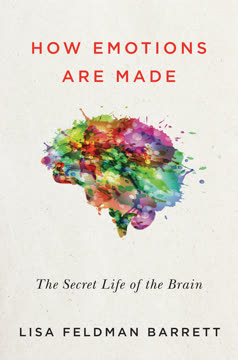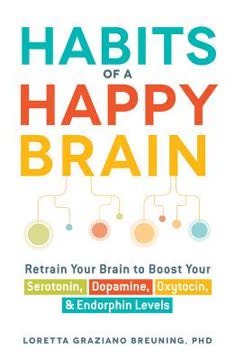Key Takeaways
1. Mental health: Understanding abnormal behavior and its implications
"The years have layered onto this term (i.e. abnormal) too many value judgments and any number of synonyms are preferable: maladaptive, maladjusted, deviant, etc."
Defining abnormality is a complex task in psychology. Abnormal behavior is often characterized by the 4Ds: distress, deviance, dysfunction, and danger. However, the concept of abnormality is influenced by cultural, social, and historical factors.
Key aspects of abnormal psychology:
- Distress: Personal suffering and emotional pain
- Deviance: Departure from social norms
- Dysfunction: Inability to function in daily life
- Danger: Potential harm to self or others
Mental health professionals use diagnostic criteria to identify and classify various disorders. However, it's crucial to recognize that the line between normal and abnormal behavior is often blurred, and diagnosis should consider individual and contextual factors. Understanding abnormal behavior helps in developing effective treatments and interventions, ranging from psychotherapy to medication, depending on the specific condition and its severity.
2. The power of perception: Visual illusions and cognitive biases
"The perceived length of a line depends on the shape and position of other lines that enclose it."
Visual illusions demonstrate how our perception can be deceived by contextual factors. These illusions reveal the complex processes involved in how our brain interprets visual information, often leading to surprising discrepancies between what we perceive and reality.
Common types of visual illusions:
- Geometric illusions (e.g., Müller-Lyer illusion)
- Color and brightness illusions
- Motion illusions
- Size and depth illusions
Understanding visual illusions provides insights into cognitive biases, which are systematic errors in thinking that affect our judgments and decisions. These biases, such as confirmation bias or anchoring effect, influence how we process information and make choices in everyday life. Recognizing these biases can help us make more informed decisions and critically evaluate our perceptions of the world around us.
3. Emotional intelligence: Recognizing and managing emotions
"Emotional intelligence: long neglected core component of mental ability or faddish and confused idea massively commercialized?"
Emotional intelligence (EI) refers to the ability to recognize, understand, and manage our own emotions and those of others. It plays a crucial role in personal and professional relationships, decision-making, and overall well-being.
Key components of emotional intelligence:
- Self-awareness: Recognizing one's own emotions
- Self-regulation: Managing and controlling emotions
- Motivation: Using emotions to achieve goals
- Empathy: Understanding others' emotions
- Social skills: Managing relationships effectively
While the concept of EI has gained popularity, there is ongoing debate about its validity as a distinct form of intelligence. Some researchers argue that EI is a crucial factor in personal and professional success, while others question its scientific basis and measurement methods. Regardless of the debate, developing emotional awareness and regulation skills can contribute to improved interpersonal relationships and mental health.
4. The science of happiness: Positive psychology and well-being
"If you want to be happy, be."
Positive psychology focuses on the study of factors that contribute to human flourishing and well-being. This field shifts the focus from treating mental illness to promoting mental health and happiness.
Key concepts in positive psychology:
- Subjective well-being: Life satisfaction and positive emotions
- Character strengths and virtues
- Flow: Optimal engagement in activities
- Resilience: Ability to bounce back from adversity
- Gratitude and mindfulness practices
Research in positive psychology has identified various factors that contribute to happiness, including strong social relationships, engaging work, and a sense of purpose. Practical applications of positive psychology include interventions such as gratitude journaling, mindfulness meditation, and strength-based approaches to personal development. While critics argue that the field oversimplifies complex issues, positive psychology has contributed valuable insights into human flourishing and well-being.
5. The complexities of human behavior: Obedience, conformity, and decision-making
"The social psychology of this century reveals a major lesson: often it is not so much the kind of person that a person is as the kind of situation in which he finds himself that determines how he will act."
Social influence plays a significant role in shaping human behavior. Psychologists have studied various aspects of social influence, including obedience to authority, conformity to group norms, and decision-making processes.
Key studies and concepts:
- Milgram's obedience experiments
- Asch's conformity studies
- Zimbardo's Stanford Prison Experiment
- Groupthink and group polarization
- Bystander effect
These studies reveal how situational factors can lead individuals to behave in ways that contradict their personal values or beliefs. Understanding these influences can help us recognize and mitigate potentially harmful social pressures. Additionally, research in decision-making psychology has uncovered various cognitive biases and heuristics that affect our choices, highlighting the importance of critical thinking and awareness of our mental processes.
6. The mysteries of the mind: Dreams, memory, and consciousness
"Consciousness … is the phenomenon whereby the universe's very existence is made known."
Consciousness remains one of the most fascinating and elusive topics in psychology. It encompasses our subjective experiences, awareness, and the ability to process and respond to information about ourselves and our environment.
Key aspects of consciousness:
- States of consciousness (e.g., waking, sleeping, dreaming)
- Altered states (e.g., hypnosis, meditation)
- Unconscious processes
- Self-awareness and metacognition
Dreams have long intrigued psychologists, with various theories attempting to explain their purpose and meaning. While Freudian interpretations focused on unconscious desires, modern research explores dreams' role in memory consolidation and emotional processing. Memory, another crucial aspect of consciousness, involves complex processes of encoding, storage, and retrieval. Understanding these processes can help improve learning techniques and shed light on memory-related disorders.
7. Developmental psychology: From childhood to cognitive stages
"Knowing does not really imply making a copy of reality but rather, reacting to it and transforming it."
Developmental psychology examines how humans grow and change throughout their lifespan, with a particular focus on cognitive, social, and emotional development. Piaget's theory of cognitive development has been influential in understanding how children's thinking evolves.
Piaget's stages of cognitive development:
- Sensorimotor stage (0-2 years)
- Preoperational stage (2-7 years)
- Concrete operational stage (7-11 years)
- Formal operational stage (11+ years)
While Piaget's theory has been criticized for underestimating children's abilities, it provides a valuable framework for understanding cognitive development. Other important concepts in developmental psychology include attachment theory, which explores the importance of early relationships, and the nature vs. nurture debate, which examines the relative influence of genetics and environment on development.
8. Learning and conditioning: How we acquire and modify behaviors
"It has been found that in early childhood there are signs of bodily activity to what only an ancient prejudice could deny the name of sexual."
Learning theories explain how we acquire new behaviors and modify existing ones. Classical and operant conditioning are two fundamental concepts in behavioral psychology that describe different types of learning processes.
Key learning concepts:
- Classical conditioning (Pavlov): Learning through association
- Operant conditioning (Skinner): Learning through consequences
- Social learning theory (Bandura): Learning through observation
- Reinforcement schedules: Patterns of reward/punishment
These theories have practical applications in various fields, including education, therapy, and behavior modification. While behaviorism dominated psychology for much of the 20th century, cognitive approaches later emerged to address higher-level learning processes. Modern learning theories integrate behavioral, cognitive, and social factors to provide a more comprehensive understanding of human learning.
9. The evolution of psychological theories: From behaviorism to cognitive science
"Behaviorism could be accurately and briefly described as psychology which leaves out psychology."
Psychological theories have evolved significantly over time, reflecting changing perspectives on human behavior and mental processes. The shift from behaviorism to cognitive psychology marked a significant turning point in the field.
Key psychological paradigms:
- Psychoanalysis: Focus on unconscious processes
- Behaviorism: Emphasis on observable behavior
- Humanistic psychology: Emphasis on personal growth and self-actualization
- Cognitive psychology: Study of mental processes
- Neuroscience: Exploration of brain-behavior relationships
Each paradigm has contributed valuable insights to our understanding of human psychology. Modern approaches often integrate multiple perspectives, recognizing the complex interplay between biological, psychological, and social factors in shaping behavior and mental processes. The ongoing development of psychological theories reflects the field's commitment to understanding the intricacies of the human mind and behavior.
10. Intelligence and personality: Measuring and understanding individual differences
"An intelligence test sometimes shows a man how smart he would have been not to have taken it."
Individual differences in intelligence and personality have been a central focus of psychological research. Intelligence testing has a long and controversial history, with ongoing debates about the nature of intelligence and how best to measure it.
Key concepts in intelligence and personality:
- IQ (Intelligence Quotient) and its limitations
- Multiple intelligences theory (Gardner)
- Big Five personality traits: Openness, Conscientiousness, Extraversion, Agreeableness, Neuroticism
- Trait vs. situational theories of personality
While intelligence tests can predict academic and professional success to some extent, they have been criticized for cultural bias and for neglecting other important aspects of human ability. Similarly, personality assessments provide insights into individual differences but should be interpreted cautiously. Understanding individual differences in intelligence and personality can inform educational practices, career guidance, and personal development strategies, while recognizing the complexity and diversity of human capabilities.
Last updated:
FAQ
What is "50 Psychology Ideas You Really Need to Know" by Adrian Furnham about?
- Comprehensive overview: The book introduces 50 essential concepts in psychology, spanning topics from abnormal behavior to cognitive therapy and emotional intelligence.
- Accessible explanations: Adrian Furnham presents complex psychological theories in clear, concise language suitable for newcomers and general readers.
- Thematic organization: Ideas are grouped into sections like "A Diseased Mind," "Illusion and Reality," and "Hearts and Minds," providing structure and context.
- Bridging theory and practice: The book highlights psychology’s impact on everyday life, linking research to fields such as health, education, and business.
Why should I read "50 Psychology Ideas You Really Need to Know" by Adrian Furnham?
- Digestible format: The book distills complex psychological ideas into manageable, easy-to-understand sections, making it ideal for beginners or those seeking a refresher.
- Broad coverage: It addresses a wide range of topics, from intelligence and emotions to social influence and therapy methods.
- Practical relevance: Readers gain insights applicable to personal development, relationships, and professional life.
- Balanced perspective: Furnham discusses both the strengths and controversies within psychology, offering a nuanced view of the field.
What are the key takeaways from "50 Psychology Ideas You Really Need to Know" by Adrian Furnham?
- Psychology’s wide scope: The discipline covers everything from mental health to decision-making, influencing many aspects of society.
- Complexity of abnormality: Definitions of abnormal behavior are shaped by cultural, historical, and clinical factors, with multiple criteria used for diagnosis.
- Social influence and cognition: Concepts like obedience, conformity, and emotional intelligence explain how people think, feel, and act in groups.
- Intelligence and emotion: Intelligence is multifaceted, and emotional intelligence is crucial for success in life and work.
What are the best quotes from "50 Psychology Ideas You Really Need to Know" by Adrian Furnham and what do they mean?
- "Psychology is both a pure and an applied science." This highlights the dual nature of psychology as both theoretical and practical.
- "Abnormality is in the eye of the beholder." This quote underscores the subjective and culturally influenced nature of defining abnormal behavior.
- "People are not always rational decision-makers." Furnham emphasizes the role of cognitive biases and heuristics in everyday choices.
- "Emotional intelligence is as important as IQ." This reflects the growing recognition of emotional skills in personal and professional success.
How does Adrian Furnham define abnormal behavior in "50 Psychology Ideas You Really Need to Know"?
- Multiple criteria: Abnormality is assessed using the 4Ds—distress, deviance, dysfunction, and danger.
- Cultural context: What is considered abnormal varies across societies and historical periods.
- Clinical focus: The main concern is whether behavior is maladaptive or causes significant distress or impairment.
- Historical evolution: Explanations have shifted from supernatural causes to complex biopsychosocial models.
What is the placebo effect according to "50 Psychology Ideas You Really Need to Know" by Adrian Furnham?
- Definition: A placebo is an inactive treatment that can produce real improvements due to psychological factors like expectation.
- Historical context: Research shows placebos can be effective in 30-75% of cases, depending on the condition and context.
- Mechanisms: Effects are influenced by conditioning, therapist confidence, and the type of placebo used.
- Research challenges: Placebo-controlled trials are essential but face ethical and methodological difficulties.
How does "50 Psychology Ideas You Really Need to Know" by Adrian Furnham explain addiction and the process of "kicking the habit"?
- Complex causes: Addiction involves biological, psychological, and social factors, with dependence marked by tolerance and withdrawal.
- Common examples: Smoking and alcohol are highlighted, with quitting made difficult by physiological and social triggers.
- Theoretical models: The book discusses opponent-process theory, reinforcement, learning theories, and genetic vulnerability.
- Treatment approaches: Strategies range from policy interventions to therapy and support systems.
What does Adrian Furnham say about schizophrenia and its misconceptions in "50 Psychology Ideas You Really Need to Know"?
- Nature of the disorder: Schizophrenia is a psychotic disorder with symptoms like delusions, hallucinations, and social withdrawal.
- Common myths: It is often wrongly equated with split personality or assumed to be inherently dangerous.
- Explanatory models: Biological, psychoanalytic, social, and conspiratorial perspectives are discussed.
- Treatment: Management includes medication, therapy, and social support, with variable outcomes.
How is emotional intelligence (EI) defined and measured in "50 Psychology Ideas You Really Need to Know" by Adrian Furnham?
- Core components: EI includes self-awareness, self-regulation, empathy, social skills, and optimism.
- Measurement approaches: EI can be assessed as a personality trait (self-report) or as an ability (performance tests).
- Workplace relevance: High EI is linked to better communication, teamwork, and leadership.
- Emotional labor: Managing emotions in service roles can lead to stress and alienation from true feelings.
What is cognitive dissonance and how is it explained in "50 Psychology Ideas You Really Need to Know" by Adrian Furnham?
- Definition: Cognitive dissonance is the discomfort felt when behavior conflicts with beliefs or attitudes.
- Reduction strategies: People resolve dissonance by changing attitudes, justifying behavior, or minimizing the conflict.
- Key conditions: Dissonance is strongest when actions are freely chosen and have significant consequences.
- Applications: The concept explains phenomena like post-decision justification and initiation rites.
How does "50 Psychology Ideas You Really Need to Know" by Adrian Furnham address heuristics, biases, and decision-making errors?
- Heuristics explained: Mental shortcuts like representativeness, availability, and anchoring help but can mislead judgment.
- Common fallacies: The gambler’s fallacy and sunk-cost fallacy illustrate how people misjudge probability and persist in poor decisions.
- Group dynamics: Groupthink and polarization can lead to worse decisions than individuals working alone.
- Advice: Understanding these biases helps improve decision-making and avoid common errors.
What is the nature versus nurture debate and the tabula rasa concept in "50 Psychology Ideas You Really Need to Know" by Adrian Furnham?
- Tabula rasa defined: The blank slate theory suggests humans are born without innate traits, shaped entirely by experience.
- Challenges to the theory: Evolutionary psychology and genetics highlight the role of biological predispositions.
- Political implications: Views on nature versus nurture often align with broader ideological beliefs.
- Complex interplay: Furnham emphasizes that both genetic and environmental factors shape human behavior.
Review Summary
50 Psychology Ideas You Really Need to Know receives mixed reviews. Some find it a good introduction for beginners, covering various psychology concepts concisely. Others criticize its superficial treatment of topics and poor organization. The book's format of 50 four-page sections is praised by some for easy reading but criticized by others for lacking depth. Readers appreciate the historical context and critiques provided for each idea. However, many note that the book may not offer much new information for those already familiar with psychology.
Similar Books










Download PDF
Download EPUB
.epub digital book format is ideal for reading ebooks on phones, tablets, and e-readers.





